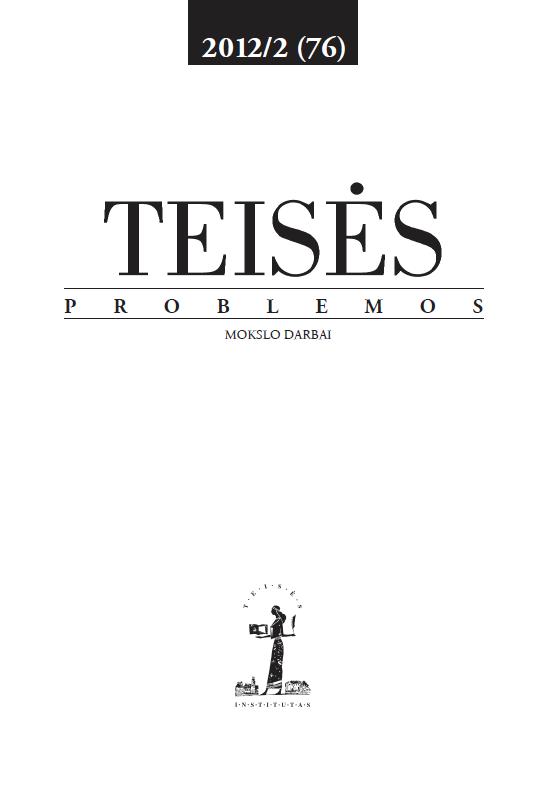Dirbančių nuteistųjų valstybinio socialinio draudimo reguliavimo ypatumai ir perspektyvos Lietuvoje
Working Prison Inmates and State Social Insurance System in Lithuania: Peculiarities and Perspectives
Author(s): Mindaugas LankauskasSubject(s): Law, Constitution, Jurisprudence, Criminology, Penology, Penal Policy
Published by: Lietuvos teisės institutas
Summary/Abstract: The article aims to answer the question whether there are preconditions to expand the scope of state social insurance regarding working prisoners. Currently working prison inmates can¬not enjoy full protection of state social insurance system. Prisoners are covered only partially because they are entitled just to social insurance against labour accidents and occupational diseases. In addition, they can self-insure themselves. Second part of the article deals with the concept of state social insurance, covers main features and types of social insurance as well as different approaches to this concept. Third part is devoted to the peculiarities of legal regulation of prisoner’s work. Key questions in this part are conceptual differences and similarities between prison work and “normal” work. Consequently, analysis of legal regulation of prison labour relations is provided. In the fourth part of the article legal framework of state social insurance related to working prison inmates is being analysed. Lithuanian legal regulation in this sphere is compared to the regulation of some foreign countries, mostly to Germany. Main conclusion of this part is that existing legal framework creates big obstacles to prisoners and former prisoners obtain the rights to different social guaranties. Although there is a legal opportunity to self-insure, it should be noted that this possibility is used by inmates very rarely if used at all. Fifth part deals with presupposed contradiction between existing legal regulation and basic human rights. It is concluded with a statement that it can be possibly discriminatory whereas lack of essential social guaranties in this case cannot be justified by the purpose of punishment and/or necessity. Moreover, it can be considered that such regulation is disproportional. Final part of the article analyses the question about the possibilities to increase the scope of social protection of prisoners by strengthening compulsory state insurance for inmates. Nevertheless, several different factors including financial potential of the state should be taken into account. Therefore, it is recommended to change existing social insurance system gradually at first targeting the most problematic types of social insurance, for example, insurance against unemployment.
Journal: Teisės problemos
- Issue Year: 2012
- Issue No: 76 (2)
- Page Range: 68-95
- Page Count: 28
- Language: Lithuanian

